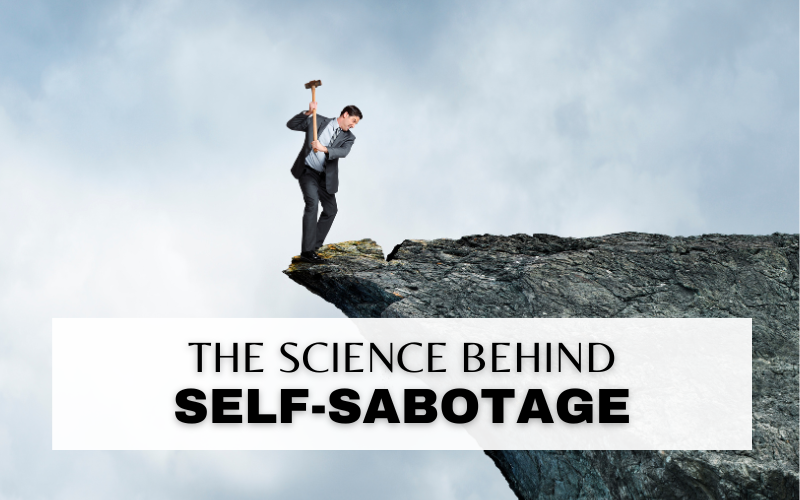Self-sabotage is probably the biggest reason clients give me for not achieving their dreams, and I have to be honest, I am definitely not immune to it myself!
I describe my self-sabotage as having one foot on the accelerator and the other on the break. I’ll get so far with something important to me; I’ll even make some significant progress. However, just as I’m starting to get some traction, I’ll stop doing all the things I know I should be doing to keep up the momentum and to achieve success.
I hear variations on the same thing from my clients. They tell me:
- I get so far, and then I just stop. I can’t put my finger on why.
- I just couldn’t get myself to do the things I know I should be doing.
- I didn’t do the ‘thing’ on Monday, and I thought, ‘It’s OK, I’ll do it tomorrow’. But a day turned into a week. A week turned into a month, and now I’ve completely lost my way’.
- I seem to deliberately get in my own way for no apparent reason!
Why Do We Self-Sabotage?
In many of my blog posts, I talk about our autonomic nervous system (ANS). It’s our in-built safety mechanism and it’s continually on the lookout for potential threats.
As humans, our brain’s primary focus is to keep us alive long enough to procreate. We are hard-wired for survival. Our ability to detect threats and act on them quickly is what’s enabled us to survive as a species for so long.
We’ve all heard of the flight, fight, freeze (stress) response that kicks in whenever our ANS perceives a threat, and it’s precisely what’s happening when we self-sabotage.
Our Autonomic Nervous System
When we attempt something new or different, e.g. a change of job, side-hustle, exercise routine, healthy eating, work project, dating, networking, breakup, divorce, a new regime of any kind, our ANS is likely to perceive it (to a greater or lesser degree) as a threat. I’ve talked about this in my previous articles about imposter syndrome; imposter syndrome is, essentially, self-sabotage!
Our brain subconsciously scans our plans against previous experiences and establishes the potential risk level. Our early programming/childhood conditioning (i.e. the behaviours and reactions we learned by copying our primary caregivers) AND our former experiences both have a huge impact on what constitutes risk; it’s different for everyone.
For example, if your parents were risk-averse, judgemental, had poor money consciousness, feared change/uncertainty, etc. it’s likely you will have adopted those values to some extent. Or, if you had a negative experience when trying something new previously, your ANS may jump to high alert more quickly than if you hadn’t.
It’s this type of unconscious programming that causes self-sabotage and stops us from achieving our goals. For example, if we have deep-rooted fears around failure, success, change, uncertainty, etc, when we attempt something new, our subconscious mind will sense the ‘threat’ and take action to stop us, thereby avoiding potential pain.
Many of us aren’t even aware that we’ve adopted these unconscious negative mindsets. So, as with my ‘one foot on the pedal, one foot on the break analogy’, our conscious mind is on the accelerator and our unconscious mind is on the break!
In the next post, I’ll discuss how to overcome self-sabotage. In the meantime, I’d love to hear your experiences and how you’ve managed to overcome them. Leave a comment in the comments section.


